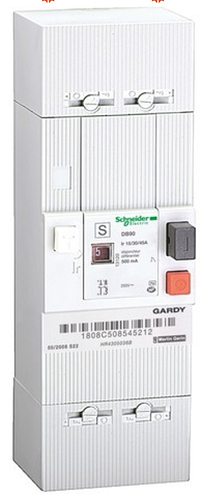I have three phase (old farm), being an ex electronics technician but need some specialist advice from a knowledgable electrician! The disjointer, which is a big cut out switch, seems to operate randomly, I have set it to the max 25Amps but it can cut out only using a kettle sometimes, it seems to be a current trip and senses both neutral/live (only using one phase) to insure they are balanced, most of the wiring is new, but disconnecting everything except say an angle grinder (9 inch) still sets it off. Its not a particularly old unit (1999) and goes through long periods without a problem. Any ideas?
“disjoncteur électrique”
Samuel… I’m presuming you are now in France…
If this is the house you are selling/buying … there should be an Expert Report on all the facilities… so take a look see. Perhaps something is mentioned in passing, which is now causing the problem…
just a thought…
No, this is my current house!
The disjoncteur is the circuit breaker. Do they not have them in British houses?
Most disjoncteurs don’t have a max current setting - which one did you fiddle with?
Something of a pain as maximum current per phase is often very low.
Lets start with the basics - what’s your supply agreement and do you know if it is an over current or RCD breaker which is tripping?
You might find the attached document useful as a French (and others) wiring primer, though it only covers single-phase.
Not exactly - older installations had a fuse (normally 100A) and the meter and then straight into the consumer unit (tableau).
New installations might have a breaker between the meter and consumer unit but I’m not sure if it is mandatory and it won’t include an RCD.
If you’re sure you aren’t taking too much current, it is most likely to be a faulty disjoncteur. A faulty appliance will normally only trip the local circuit breaker.
The trouble with an intermittent fault is that if you can’t reproduce it, it is hard to be sure what is causing the problem.
The disjoncteur is the responsibility of Enedis and they will replace it without charge if it is faulty, but will likely charge for the call out if it isn’t. But it could be worth it if it saves you time and identifies some other problem with your installation.
Note: The company circuit breaker is called “un disjoncteur abonnée.” Those that protect individual circuits are called “un disjoncteur différentiel.”
How many watts are the kettle and angle grinder rated at?
When the issue occurs, are they on the same phase?
The max 25 Amps that you refer to - is that the rating of the breaker / for each phase?
Hi Samuel… this is your current house…
How long have you been there… if fairly recenlty, was it you who did the electrics?
Have you had a linky meter fitted ?
so many variables… and it might just be that something has chewed a wire…
Note the difference between disjoncteur différentiel (equivalent to RCBO in the UK) and interrupteur différentiel (equivalent to an RCD in the UK) and plain disjoncteur (equivalent to an MCB in the UK)
Most tableau will, AIUI, have disjoncteurs protecting individual circuits from over-current fed by an overall interrupteur différentiel providing earth leakage protection.
To be absolutely clear the company disjoncteur should have anti-tamper seals. If it hasn’t, you may have some difficult questions to answer!
Indeed
A photo of the disjoncteur that @seaeagle “set to 25A” might be helpful.
There are many different makers and they don’t all look the same.
The common features are an ON switch, a disconnect button and a small window showing the Amperage setting. Ours has a rotary ON switch, but the one below is probably more typical.
True - but if it is obviously a 5/600mA trip disjoncteur differentiel it will be the Enedis one.
Whatever it looks like, being the main switch, it should be rated to trip at 500mA
Lord Finchley tried to mend the Electric Light
Himself. It struck him dead: And serve him right!
It is the business of the wealthy man
To give employment to the artisan.
Might be an idea to ask a French Qualified Electrician to take a look… shouldn’t cost very much…
better to be safe than sorry… 
